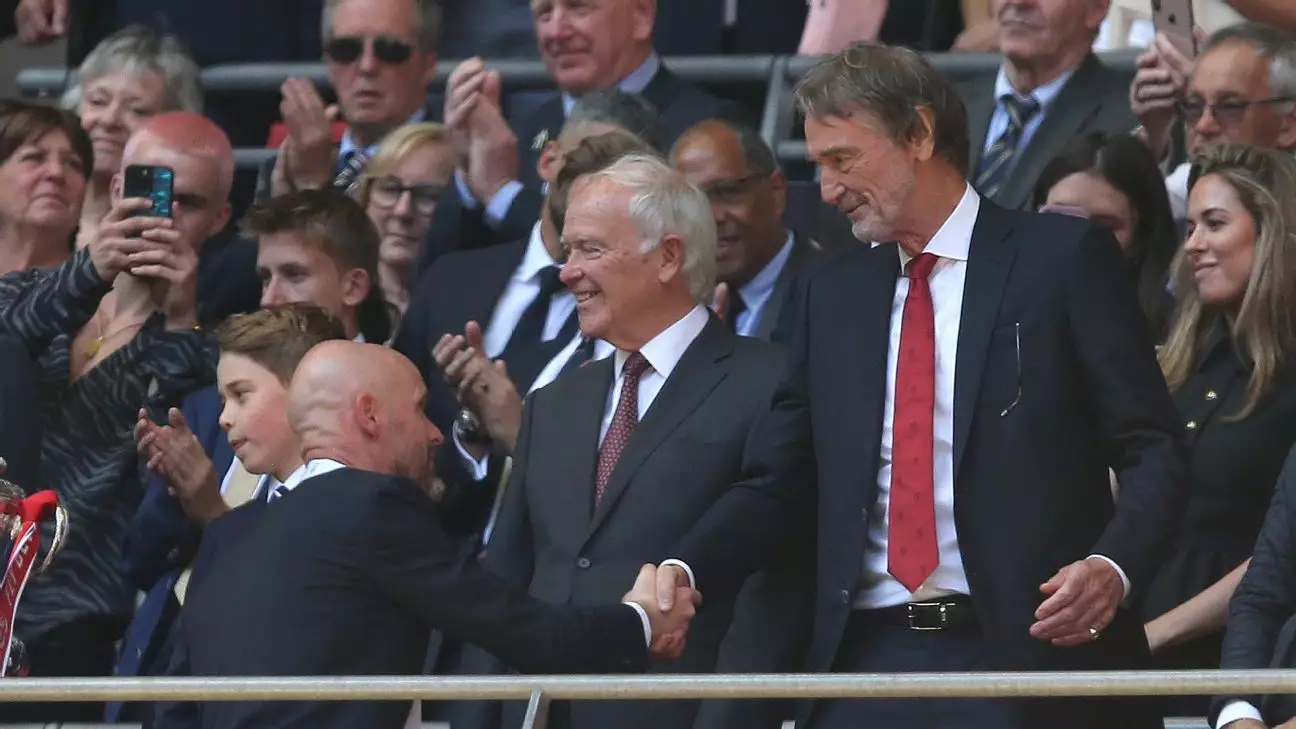In the world of football, the pressure to perform can create a palpable tension, especially for high-profile clubs like Manchester United. Recently, co-owner Sir Jim Ratcliffe cast a shadow over the future of manager Erik ten Hag, who is currently navigating choppy waters following a series of disappointing results. With four straight games without victory, the Dutchman finds himself under immense scrutiny. As the team prepares for a pivotal match against Aston Villa, Ratcliffe’s unwillingness to offer full support raises questions about ten Hag’s long-term viability at the helm.
During a press interaction in Barcelona, Ratcliffe’s vague response to whether he has faith in ten Hag underscored the growing uncertainty surrounding the managerial position. By stating, “I don’t want to answer that question,” he cleverly sidestepped placing any responsibility on himself or the management team. Such diplomatic language may come off as evasive, revealing a reluctance to align Ratcliffe’s name with ten Hag’s future, potentially to avoid backlash from the fanbase and media alike.
This raises a significant concern for fans: if the owner hesitates to back the manager publicly, how secure is ten Hag’s position behind closed doors? The nuances of management decision-making often hide more than they reveal, and in this case, it’s a matter of trust.
Since Ratcliffe acquired a 27.7% stake in the club earlier this year, there’s been a notable restructuring within the organization. Appointments like Omar Berrada as the new CEO and the arrival of sporting director Dan Ashworth and technical director Jason Wilcox speak to an effort to overhaul the club’s operational framework. Yet, their relatively recent installation raises a critical question—how much influence do they truly have over decisions regarding the manager?
Ten Hag’s contract extension this past summer was a decision made prior to these executives stepping into their roles. Ratcliffe’s comments highlight the tenuous situation: “That team running Manchester United has only been together since June or July,” he remarked, implying a need for patience as the new leadership gets acclimated to their responsibilities. In the whirlwind environment of top-flight football, waiting for decision-makers to gain experience can feel risky, especially when results are needed now.
Despite the apparent turmoil, Ratcliffe remains clear about his vision for the club: “Our objective is very clear; we want to take Manchester United back to where it should be.” This declaration resonates deeply with fans yearning for a return to greatness. However, a substantial challenge lies in reconciling this ambition with the realities of performance and management stability.
The uncertainty surrounding ten Hag’s future and the ambiguous statements from Ratcliffe encapsulate the complex landscape of football management. As Manchester United confronts a critical juncture in their season, the outcomes of upcoming matches may very well decide not just the fate of the team but also the direction in which the club is headed. Supporters are left to wonder whether the recent changes can restore their once-beloved club to its former glory, or if they will find themselves in an endless cycle of upheaval.

Leave a Reply